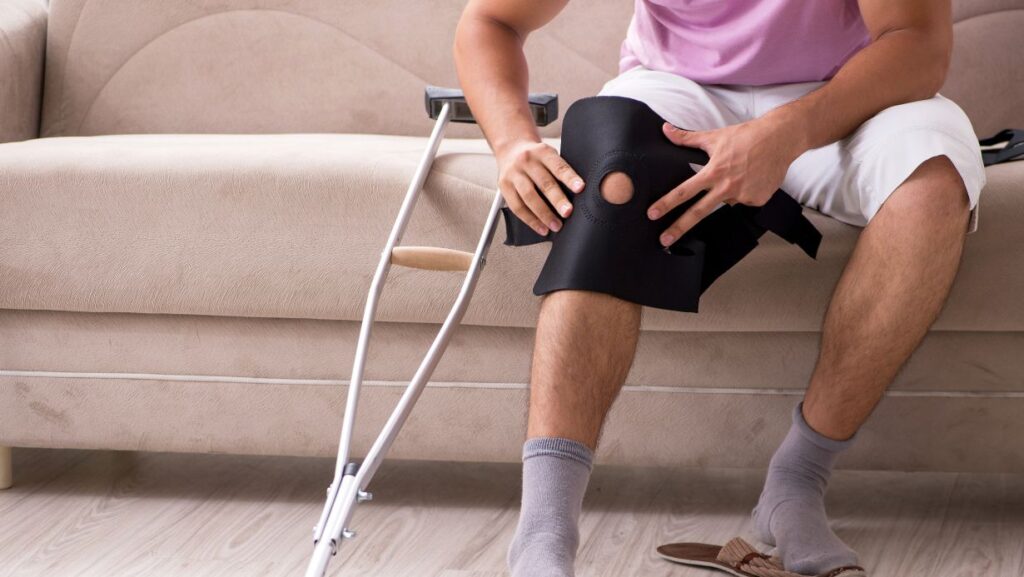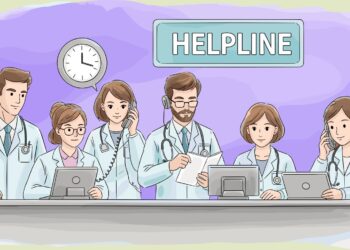Healing from an injury can be problematic, both physically and mentally. While rest is essential, being healthy and active during recovery plays a crucial role in healing. Staying healthy, active, and happy prevents muscle loss and maintains overall well-being.
The right balance of gentle movement, proper nutrition, and self-care can help you regain strength without risking further injury. By hearing your inner voice and following professional recommendations, you can support a safe and steady recovery.
In this article, we will research practical suggestions to keep you active, promote healing, and maintain a positive mindset during recovery to full health.
Work Closely with Your Healthcare Team
As per the National Injury Facts, preventable injuries have reached record levels, now standing as the third leading cause of death. Around 62 million people in the US faced nonfatal preventable injuries in 2023. These people visited medical centers to get treatment for their injuries.
Lucky survivors of non-fatal injuries must work closely with the healthcare team for speedy recovery. The medical team will provide you with a customized plan according to your needs, progress, and limitations.
Regular communication ensures you’re following the right exercises. Your healthcare team ensures you are away from harmful activities and adjusts your treatment as needed.
Adopt a Gentle but Consistent Exercise Routine
Maintaining mobility and supporting recovery after an injury requires a consistent exercise routine. Simple walking or swimming are low-intensity workouts that can help in recovery.
According to the Centers for Disease Control & Prevention, regular physical training can help you feel better during recovery. If you’re not active yet, gradually work toward 150 minutes of low-impact exercise each week through mild activities. You can reach this goal with 30 minutes a day, five days a week, 22 minutes daily, or any routine that fits your lifestyle.
Consistency helps your body gradually rebuild strength and resilience. Always listen to your body’s signals and progress at a pace recommended by your healthcare provider only.
Seek Support for Accident-Related Recovery
Recovering from physical injuries often requires more than just medical treatment; it also calls for emotional strength and proper support systems.
For example, a recent report from Yahoo News highlighted an accident in Rogers. A car driver was hospitalized after colliding with a semi-truck on Hudson Road near 8th Street. Although the passenger sustained only minor injuries, he was still transported by ambulance to ensure proper medical care.
Situations like these remind us that while medical attention is crucial, victims may also need legal guidance to navigate the challenges that follow. In the above case, consulting a Rogers car accident attorney can help ensure that your rights are protected during recovery.
Keith Law Group explains that knowledgeable attorneys experienced in personal injury and product liability cases fight for the maximum payout. Many even offer a free case review. Having such support not only eases financial worries but also brings peace of mind. It allows you to focus fully on healing and regaining strength.
Support Healing Through Proper Nutrition
A balanced diet, rich in lean proteins, vitamins, minerals, and healthy fats, helps repair tissues, reduce inflammation, and strengthen the immune system. Nutrients like zinc, vitamin C, and omega-3 acids can speed up recovery and promote overall wellness.
Staying hydrated is also essential, as it aids in nutrient delivery and joint health. Nourishing your body properly ensures you’re giving it the means to heal efficiently.
Manage Pain Safely and Effectively
According to the National Library of Medicine, injury can result in chronic pain, lasting for more than 3 to 6 months. It affects nearly one-quarter of the U.S population. Often linked with depression and anxiety, it greatly reduces quality of life while increasing risks of serious health complications.
Work with your healthcare team to find the right balance of treatments, which include prescribed medicines, physical therapy, and relaxation strategies. Avoid self-medicating or exceeding recommended doses, as this can lead to complications.
Safe pain management not only improves comfort but also allows you to stay active, follow your recovery plan, heal with greater ease and confidence, and protect your core wellness.
Prioritize Mental and Emotional Health
A survey by the American Psychological Association reported a significant increase in mental health disorders and chronic illnesses among Americans after the pandemic. Adults aged 35 to 44 have reported the highest increase in mental health conditions. Also, 45% reported a mental health issue in 2023 compared with 31% in 2019.

These mental health conditions can worsen after injuries and lead to feelings of frustration, isolation, or anxiety, which may slow your healing. Engage in tasks that boost your spirit, such as meditation or connecting with supportive friends and family. A professional counselor can also provide helpful coping techniques.
Frequently Asked Questions
What exercises are safe after an injury?
Low-impact activities like walking, slow swimming, static cycling, and gentle stretching are safe. These help maintain mobility and strength without straining healing tissues. Always follow your healthcare provider’s guidance, start slowly, and adjust intensity based on your comfort to avoid re-injury.
How quickly can I return to my usual routine?
It depends on the type and severity of your injury, as well as your recovery progress. Always follow your healthcare provider’s advice and avoid rushing the process. Gradual reintroduction of activities helps prevent setbacks and supports long-term healing and strength.
What foods speed up injury recovery?
Foods rich in protein, vitamin C, zinc, and omega-3 fatty acids can speed up recovery by supporting tissue repair and reducing inflammation. Examples include lean meats, citrus fruits, nuts, seeds, and fatty fish. A balanced diet with surplus fruits, veggies, and whole grains also promotes overall healing.
Staying Strong Through the Recovery Journey
Recovering from a physical injury takes patience, dedication, and the right approach to self-care. By working closely with your healthcare team, gentle exercise, nutrient-rich foods, and supporting your mental well-being, you can heal more effectively.
Remember, progress may be gradual, but each step brings you closer to full recovery. Stay consistent, listen to your body, and celebrate small accomplishments along the way.














Discussion about this post